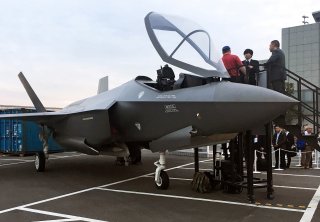The War the World Fears: A China-Japan Battle for Asia
Who would win?
If the old skeptic is right, the US-Japan alliance could come under stress in wartime. Tokyo and Washington share the same immediate goal, conserving the US-led order in East Asia. Consensus about the surroundings and how to manage them would seem to cement allied unity. But as Clausewitz reminds us, the importance assigned to a goal -- not just the goal itself -- matters. One ally can place so-so value on a goal that another prizes dearly. Tokyo has status and territorial interests at stake, riveting its attention and energies on the dispute. Yet it's far from clear that the American polity -- state and society -- values custodianship of the maritime order or the defense of Japanese-held lands that highly. Suspicions could seep into allied consultations, with Tokyo questioning Washington's devotion and Washington resenting being dragged into war.
In the end, then, the outcome may come down to who wants it more. Will China or the transpacific alliance muster more, and more sustained, enthusiasm for its cause? Thucydides reminds posterity that fear and honor -- not just objective interests -- propel human affairs. Scottish philosopher David Hume seconds the thought, adding that "Interest and ambition, honour and shame, friendship and enmity, gratitude and revenge, are the prime movers in all public transactions; and these passions are of a very stubborn and intractable nature."
Philosophers thus maintain that passions color the most rational calculations. Nearby threats to crucial interests concentrate minds. Threats to remote, seemingly ethereal interests elicit less ardor, and thus less political support, from the man on the street -- even if he agrees on the need to combat such threats. If U.S. leaders take the nation to war in the Western Pacific, quite a salesmanship challenge awaits them. War or no war, it's worth rallying support behind America's responsibilities. Now would be a good time to start.
Where does this all leave us? Sino-Japanese war could break out over matters Westerners deem inconsequential. It would be a coalition war, and it could be big, bad, and long. The US-Japan alliance might appear solid in the early going, obscuring subterranean fractures within the alliance. Yet transpacific unity might dissipate should the struggle wear on and American resolve flag -- exposing these fissures. These are matters worth clarifying in allied circles now, before things turn ugly.
Let's grok strategic reality. Heinlein would expect no less.
James Holmes is J. C. Wylie Chair of Maritime Strategy at the Naval War College and author of “Visualize Chinese Sea Power.”
Image: Reuters.

